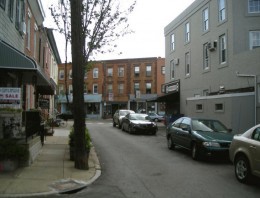Cities Cutting Property Taxes to Help Longtime Residents Affected by Gentrication

A burst of new home construction in Boston, Philadelphia, Washington, Pittsburgh, San Francisco, and other cities have caused neighborhoods in those cities to quickly gentrify, and if you are a longtime resident and homeowner in those cities, it’s possible that you’ve seen the value of your home skyrocket as much as four times in a single year. Great, right? Not exactly. Not if you can no longer afford the property taxes and don’t want to sell your house. The Times reports that cities are mobilizing to help their longtime residents affected by gentrification by giving them cuts on their property taxes — which alleviates the burden among longtime residents, but will ultimately affect each city’s annual revenue. Still, the cities believe investing in longtime residents is worth it:
The tax adjustments are part of a broader strategy by cities to aid homeowners — who continue to struggle financially since the home mortgage crisis. In Richmond, Calif., lawmakers are attempting to use eminent domain to seize underwater mortgages to try to help homeowners keep their houses.
Housing experts say the arrival of newcomers to formerly working-class areas — from the Mission District in San Francisco to the Shaw neighborhood in Washington — is distinct from previous influxes over the past 30 years because new residents are now far more likely to choose to move into new condominiums or lofts instead of into existing housing, making the changes more disruptive.
“This latest wave of gentrification has happened very quickly, and cities are cognizant to keep from turning over entirely,” said Lisa Sturtevant, executive director of the Center for Housing Policy, a nonprofit research group. “And cities where property values are up and budgets are generally more stable have the wherewithal to provide tax breaks.”
Ms. Sturtevant said that given that many of the younger, newer arrivals do not necessarily plan to stay for long, cities are making a sensible economic choice.
“There’s less personal investment and less incentive to stay, so cities are saying, ‘Let’s invest in the stayers,’ ” she said.
Jacy Webster, who lives in an Italian-American block in South Philadelphia will be one of the residents seeking help. In the past year he saw his property jump from $45,000 to $250,000. He’s waiting to hear back from the city, and if he doesn’t receive help, he says he’ll be forced to move.
Photo: Eric Beato
Support The Billfold
The Billfold continues to exist thanks to support from our readers. Help us continue to do our work by making a monthly pledge on Patreon or a one-time-only contribution through PayPal.
Comments